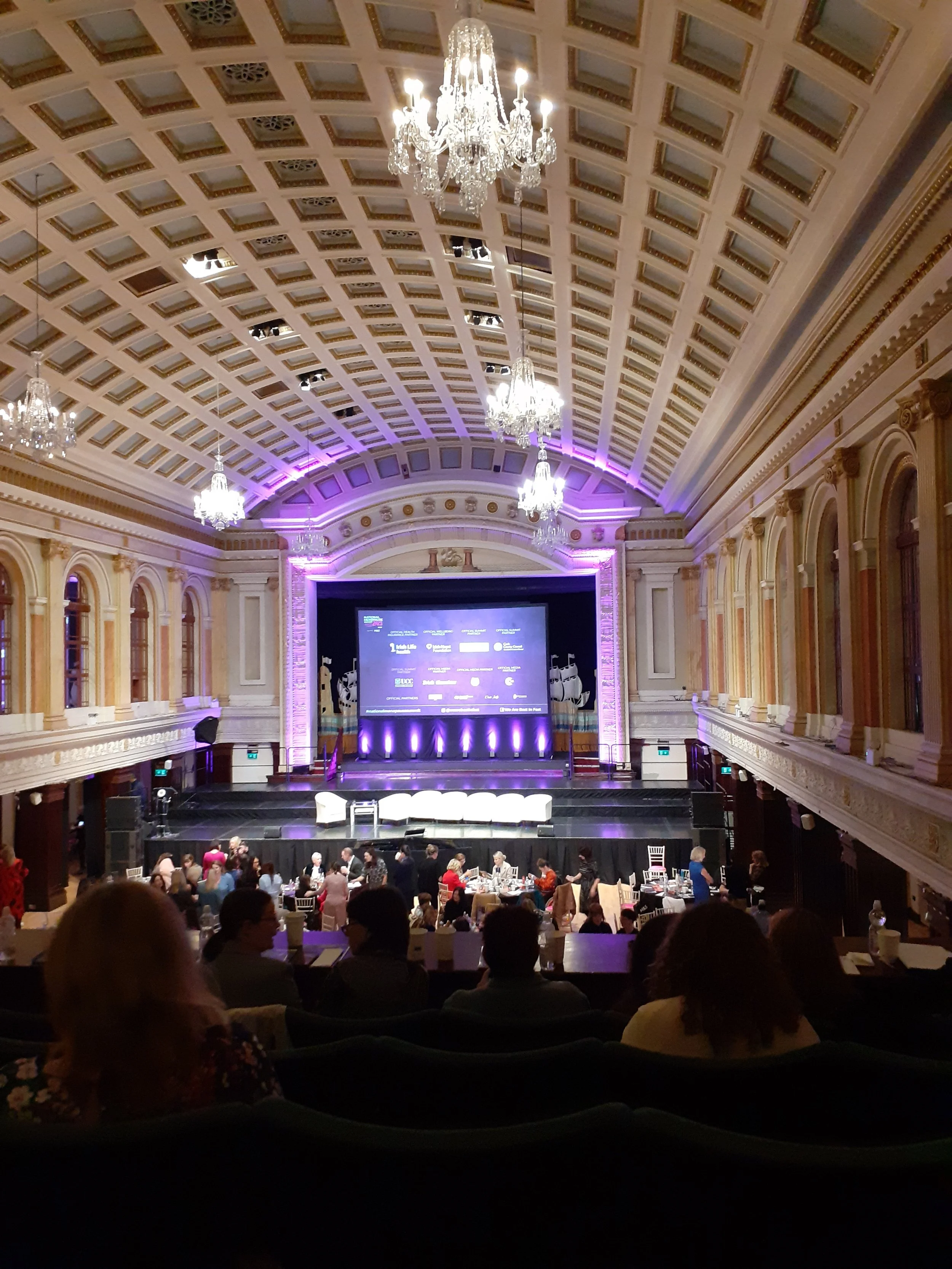Conference Report: National Menopause Summit - Cork
There was a fabulous energy at the National Menopause Summit in Cork on Friday, 20th October! There was a great line-up of speakers and an interested and motivated crowd. I’m so honored I was able to attend. Here were a few of the highlights for me:
Gráinne Seoige (Irish journalist and MC of the event) interviewed Mariella Frostrup (British journalist and television presenter)
What an amazing conversation between two incredible women, both of whom have made documentaries on menopause! Ms. Frostrup talked about how difficult it was to get support to make her own documentary at the BBC and took years. She also talked about how it ended up being made in the Science Department, so that was the focus, but she would have liked to do more about the cultural aspect of menopause, which is the hardest part for many women (“or was five years ago”). She talked about how we live in an “extremely ageist society [that] judges women on their sexual currency and fertility.” This wide-ranging interview touched on so many relevant topics, such as the lack of training and education for many doctors; the general lack of investment and interest in women’s health; and how we are still emerging from “centuries of ignorance.” Ms. Frostrup said she wrote the book, Cracking the Menopause: While Keeping Yourself Together, “to spare every other woman who comes along that period where you question everything about yourself.” In answer to a question from the crowd, she added that she believes we should not have to express gratitude for accommodations (for menopause, for example in the workplace): “Why is what we go through seen as the exception, rather than the norm?” On health education, she said, “We have to stop being ashamed of our bodies like we’ve been taught to do since time immemorial… not allow shame to be how we feel about every single stage of our biological life.” So much of what Ms. Frostrup said resonated with me 100% and spoke directly to the issue of menopause and mental health. Her book, “Cracking the Menopause,” is going on my to-read list!
Presentation by Dr. Karen Soffe, GP with a special interest in women’s health and specialist with the British Menopause Society
In her presentation, “Menopause health: Symptoms & Solutions,” Dr. Soffe described the range of symptoms women speak about with their GPs, including “low mood, crushing anxiety, agitation,” and an “inability to cope.” She talked about how the body “becomes less tolerant of everything” and women come in to the doctor saying they feel like they’re “falling apart.” She also pointed out that more than hot flushes, brain fog is often identified as the most devastating symptom, along with women feeling “like they’re having a nervous breakdown.” In addition to her clinical recommendations, the piece of advice she gave that stuck with me from a mental health perspective was, “Be a little bit more selfish. Take time for yourself.”
Presentation by Dr. Máire Finn, Irish GP interested in women’s health and wellbeing
Dr. Finn presented on “Menopause & mental health: Managing brain fog, anxiety & stress.” Like Dr. Soffe, she talked about anxiety and stress being major issues, and spoke about brain fog, noting that it impacts self-esteem and confidence. She said that the symptoms that “really get to women” are feeling irritable, lacking confidence, and having the feeling that “I don’t know myself anymore.” Other speakers had talked about how these problems can cause women to leave the workplace,and Dr. FInn noted that this can cause other problems, such as personal loss and decline of economic independence. Dr. Finn pointed out that the brain fog associated with menopause impacts verbal and working memory, but notably does not impact higher cognitive function. In fact, she said our brains adapt and change in response to the hormonal changes that occur and lay down new pathways; this is why brain fog does improve in most cases. She touched on the work being done in neuroscience by Dr. Lisa Mosconi, which has proven that our cognitive/brain symptoms during menopause are endocrine-related (or, we’re not imagining things — my words). Finally, Dr. Finn spoke about the fact that women often feel so much shame around these issues, and raised the oft-unexamined question, why? Why do we feel shame, and what can be done to reduce that feeling? For my own part, I found that last question most compelling, and a good reflection of a point that was repeated throughout the day: not only is work needed to diagnose and treat symptoms of menopause, but work is also needed to change how we think about it and experience it in a cultural context.
Presentation at the National Menopause Summit in Cork, Ireland on 20th October, 2023.



